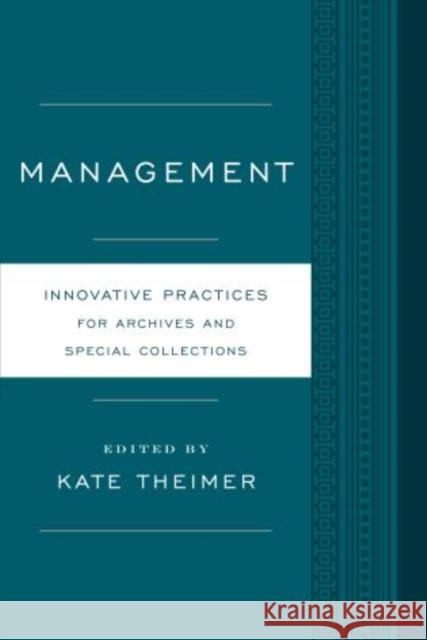Management: Innovative Practices for Archives and Special Collections » książka
Management: Innovative Practices for Archives and Special Collections
ISBN-13: 9780810890954 / Angielski / Miękka / 2014 / 216 str.
Management: Innovative Practices for Archives and Special Collections explores the kinds of challenges that managers of archival programs face today and how those challenges can be met to achieve optimal results while working within existing resources. The book features thirteen case studies that demonstrate solutions to both traditional management concerns as well as new issues and opportunities presented by changes in technology and organizational environments. The featured case studies are: 1) "We'll Never Let You Retire " Creating a Culture of Knowledge Transfer 2) Raising Cash and Building Connections: Using Kickstarter to Fund and Promote a Cultural Heritage Project 3) A Winning Combination: Internships and High-Impact Learning in Archives 4) A Thief in Our Midst: Special Collections, Archives and Insider Theft 5) Tackling the Backlog: Conducting a Collections Assessment on a Shoestring 6) A Platform for Innovation: Creating the Labs Environment at the National Archives of Australia 7) Setting Our Own Agenda: Managing the Merger of Archives and Special Collections 8) Taking Control: Managing Organizational Change in Archives 9) Implementing Pre-Custodial Processing: Engaging Organizations to Invest Resources in their Records 10) Building Effective Leaders: Redesigning the Archives Leadership Institute 11) From Evaluation to Implementation: Selecting Archival Management Software 12) More Bang for the Buck: Sharing Personnel and Resources Across Institutions 13) "Make a New Plan, Stan" Useful and Painless Strategic Planning The collected case studies present pragmatic approaches to challenges and opportunities that are common to organizations of all sizes and types. Their common focus is on building stronger archival programs by making effective use of people, technology, and resources while working within organizational requirements and constraints. The volume will be useful to those working in archives and special collections as well as other cultural heritage organizations, and provides ideas ranging from the aspirational to the immediately implementable. It also provides students and educators in archives, library, and public history graduate programs a resource for understanding the issues facing managers in the field today and the kinds of strategies archivists are using to meet these new challenges.











